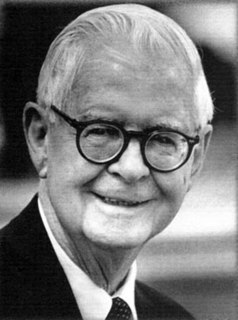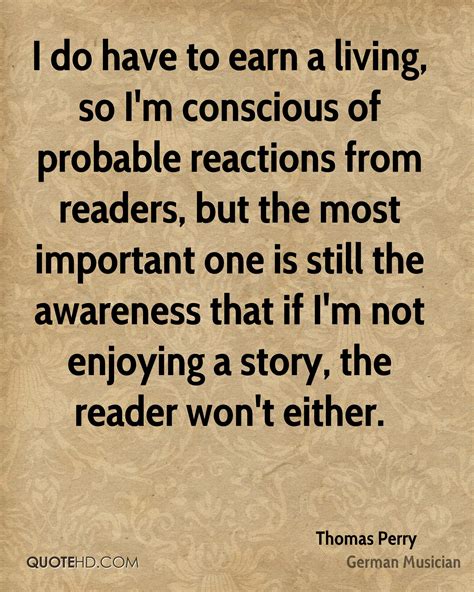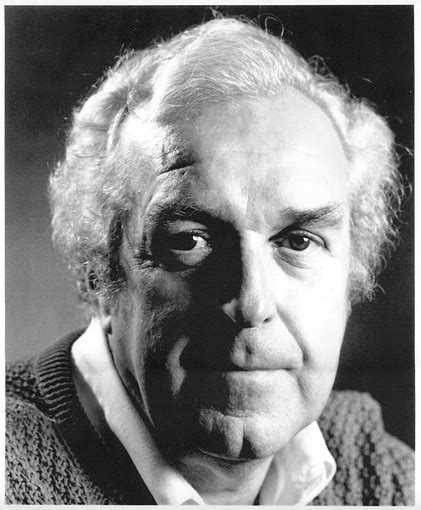A Quote by Michael Connelly
...it is how a person goes about quenching his desires or living with them unrequited that the readers get a glimpse of his true character.
Related Quotes
The ear is the only true writer and the only true reader. I know people who read without hearing the sentence sounds and they were the fastest readers. Eye readers we call them. They get the meaning by glances. But they are bad readers because they miss the best part of what a good writer puts into his work.
When we try to describe one person to another …, what do we say? Not usually how or what that person ate, rarely what he wore, only occasionally how he managed his job—no, what we tell is what he said and, if we are good mimics, how he said it. We apparently consider a person's spoken words the true essence of his being.
For me, 'The Social Network' isn't about Facebook. It certainly isn't about how people use it. It's about a flawed character and his pursuit of that grand idea that defines him and validates his life and how far he'll go to get it, and the repercussions that come as a result of that - what he gives up in the process.
It is difficult for me to imagine what “personal liberty” is enjoyed by an unemployed hungry person. True freedom can only be where there is no exploitation and oppression of one person by another; where there is not unemployment, and where a person is not living in fear of losing his job, his home and his bread. Only in such a society personal and any other freedom can exist for real and not on paper.
You may give a piece of bread to a hungry person, and when the cravings of hunger return some one else must administer to his wants again; to put that person in a position to earn his own subsistence is true charity; in this way you direct his feet in the path of true independence, he is then only dependent on his own exertions and on the blessings of his God.
Depending on the year or the therapist he was seeing, he'd learned to ascribe just about every facet of his character as a psychological reaction to his parents' fighting: his laziness, his overachieving, his tendency to isolate, his tendency to seduce, his hypochondria, his sense of invulnerability, his self-loathing, his narcissism.
Despite his [Artie Shaw's] affectations of reclusiveness, he never tired of talking about himself, as countless long interviews reveal. I do not recall an anecdote he ever told me that was not in some way intended to convey a sense of his own superiority to everyone. . One wonders how a person of his character could produce such beauty.



































